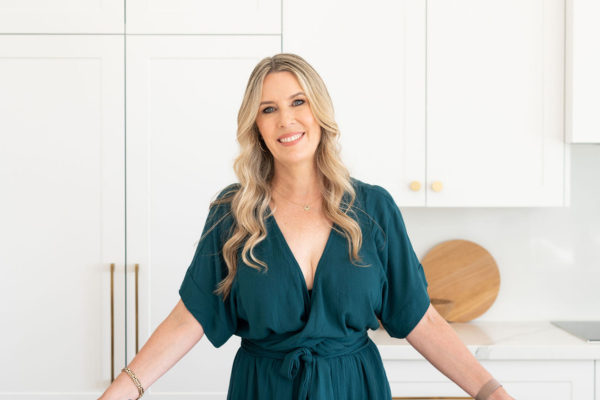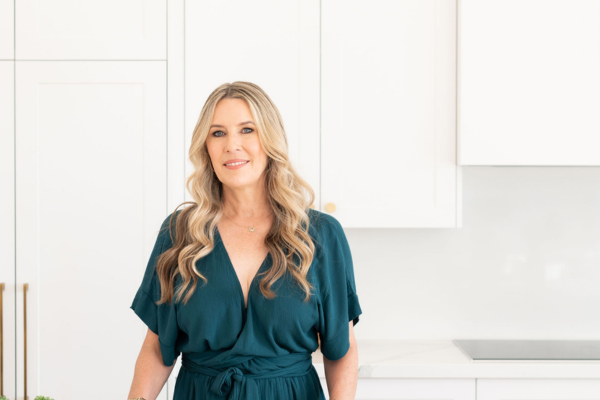As a Perimenopause Naturopath and Weight Loss Nutritionist, I’ve seen many women over 40 strive towards managing their menopausal symptoms naturally plus maintain their ideal weight. Yet, despite their best efforts, some fall short of their goals, not because of lack of trying, but due to unforeseen self-sabotage. In this post, we’ll uncover the hidden ways you might be holding yourself back from receiving relief from your menopause symptoms and making your symptoms worse!
Here are some of the biggest ways that I see women over 40 sabotaging their efforts!
1. Overlooking the Impact of Stress
Many women often overlook managing their stress, which is essential for hormone balance and having a healthy weight .
This oversight can lead to an increase in hot flushes, belly fat, anxiety, insomnia, etc., and also making it more difficult to achieve your ideal weight.
Some things you can do to calm your body and mind are:
– Take deep breaths into your belly whenever possible
– Get out in nature (even just the back yard or looking out the window at trees)
– Do activities that bring you joy
– Spend time with friends, family and pets
– Move your body in a mindful way
2. Thinking that you can be doing the same things you’ve always done and receive the same result
Unfortunately ladies, there are a lot of hormonal shifts going on in your body when you’re over 40 and I hear the same sentence over and over when I’m having PreScreening Calls with potential clients – “I’m doing the same things I’ve always done to lose weight/improve my mood/sleep/energy, etc. but it’s not working anymore!” In reality, it’s time to overhaul the way you approach food, movement and lifestyle in a way that works for you, so that you can have glowing skin, abundant energy, symptom relief and healthy weight loss with no more confusion and no more frustration.
The sooner you take some actions towards making these changes, the better you’re going to feel and the more you’ll enjoy your life.
3. Neglecting Self Care
Often, I see women over 40 putting everyone else first and neglecting themselves, not realising just how important it is for them to ‘put on their own oxygen mask first’.
By ignoring self care and seeing it as a luxury, you risk your own mental wellbeing as the busyness and stress of daily life can take its toll. Many women wait until they’re at breaking point before they reach out for help and this makes it a much longer journey back to feeling like themselves again.
If you can make a conscious effort to take some time to nourish your body and mind, and incorporate it into your DAILY routine, then you will notice an improvement in hormone balance and weight.
Things like:
- Using a positive affirmation. My favourite is to look in the mirror and put your hand on your heart and say “I love and accept myself” three times while making eye contact with yourself.
- Eating nourishing whole foods and quality dark chocolate.
- Popping on a face mask while listening to your favourite podcast (The Ageless and Awesome Podcast of course 😀)
- Enjoying an essential oils bath with some magnesium salts in candlelight
4. Falling Into Fad Dieting
It’s easy to fall into fad diets, especially when everyone around you is doing it. I get so frustrated by the encouragement to do 1200 cal/day, keto, fasting, juice detoxes by unqualified individuals who are uneducated and are not taking into account women’s medical conditions, hormone status, relationship with food and health goals.
This can set you back by not supporting great hormone health and starving your body of the nutrients it needs and leading to a yo-yo effect of weight loss and gain..
To avoid this make sure that you do your own research and ask the right questions such as:
- How will this support my hormone health?
- Is this tailored to me as an individual? If so, how?
- How will this work for me long term?
5. Assuming that you just have to put up with hormone symptoms and weight gain because this is a ‘natural stage of life’.
There’s so, so much that can be done to reduce your perimenopause and menopause symptoms, improve your enjoyment of life, make your skin glow and support you to reach your ideal weight.
And the recommendations I make to my clients do not involve long term use of expensive supplements, starvation diets and flogging yourself with exercise.
Hopefully that has helped shed some light onto what might be getting in your way to feeling like your old self again. Were there any that applied to you?
If you’re struggling with perimenopause symptoms and/or unwanted weight gain, let’s connect. Together, we can address these issues head-on, setting you on the right path to feeling awesome again.











